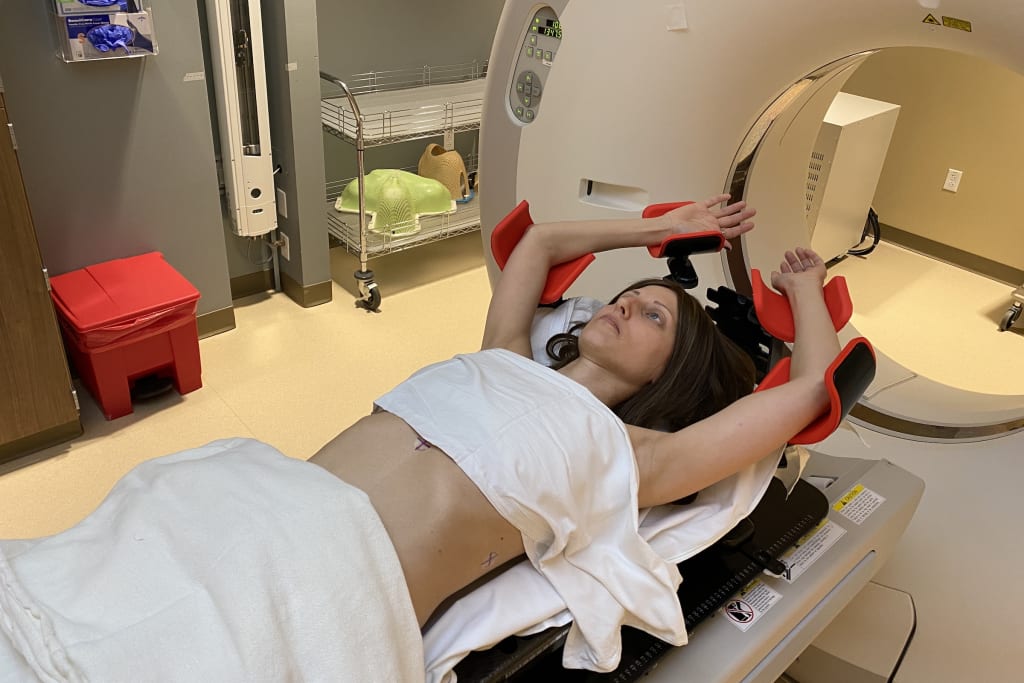Breast Cancer Prevention and Support: Strategies for a Healthier Future
Empowering Women with Knowledge and Natural Remedies

Breast cancer is a prevalent and complex disease that affects millions of women worldwide. One significant factor in the development and progression of breast cancer is estrogen, a hormone that plays a crucial role in the growth and maintenance of breast tissue. As such, targeting estrogen has become a key strategy in breast cancer treatment, and combination therapy has emerged as a promising approach to enhance treatment efficacy. In this article, we will explore the concept of combination therapy for breast cancer, focusing on approaches that mitigate estrogen's effects without plagiarism.
"I don't always talk about breast cancer, but when I do, it's to remind everyone to get their mammograms!"
1. Estrogen and Breast Cancer:
Estrogen is a hormone produced primarily in the ovaries and plays a vital role in the regulation of the menstrual cycle and development of secondary sexual characteristics. However, high levels of estrogen can also promote the growth of certain breast cancer types, such as hormone receptor-positive breast cancers.
2. Targeting Estrogen Receptors:
Combination therapy often involves targeting estrogen receptors (ER) in breast cancer cells. Selective estrogen receptor modulators (SERMs), such as tamoxifen, work by blocking estrogen from binding to the receptors, thereby inhibiting the growth signals transmitted to the cancer cells. By using SERMs in combination with other therapies, researchers aim to achieve synergistic effects that lead to improved treatment outcomes.
3. Aromatase Inhibitors (AIs):
Aromatase inhibitors are another class of drugs used in combination therapy. They block the enzyme aromatase, responsible for converting androgens to estrogens in peripheral tissues. AIs effectively reduce overall estrogen levels in postmenopausal women and are used in hormone receptor-positive breast cancer treatment.
4. Targeted Therapies:
Combination therapies in breast cancer may also include targeted therapies. For instance, drugs like Herceptin (trastuzumab) target the human epidermal growth factor receptor 2 (HER2) in HER2-positive breast cancers. Combining HER2-targeted therapy with hormone-targeting drugs can be beneficial in certain cases.
5. Chemotherapy and Radiation:
In addition to hormonal therapies, combination approaches may include chemotherapy or radiation. Chemotherapy drugs are particularly useful in targeting rapidly dividing cancer cells throughout the body. Radiation therapy, on the other hand, focuses on a specific area to kill cancer cells locally.
6. Clinical Trials and Personalized Medicine:
The field of breast cancer research is continuously evolving, with ongoing clinical trials exploring new combinations of therapies. These trials aim to identify the most effective treatment regimens for specific breast cancer subtypes and individual patients. Personalized medicine, based on genomic profiling, is becoming increasingly important in tailoring combination therapies to suit each patient's unique cancer characteristics.
"You know you're getting older when your idea of a wild night is staying up past 9 PM to watch a breast cancer awareness documentary."
Combination therapy targeting estrogen has become a cornerstone in breast cancer treatment. By employing a comprehensive approach that combines hormone-blocking agents, targeted therapies, and traditional treatments, healthcare providers can enhance treatment efficacy and patient outcomes. Ongoing research and clinical trials continue to shape the future of combination therapy, offering hope for improved survival rates and better quality of life for breast cancer patients.
Prevention and Natural Remedies for Breast Cancer
1. Prevention:
While breast cancer cannot always be completely prevented, certain lifestyle changes and risk-reduction strategies can help lower the chances of developing the disease:
a. Regular Screening: Early detection is crucial for successful treatment. Women should undergo regular breast cancer screening, including mammograms and clinical breast exams, as recommended by their healthcare providers.
b. Healthy Diet: Adopting a balanced and nutritious diet rich in fruits, vegetables, whole grains, and lean proteins may contribute to overall health and reduce breast cancer risk.
c. Physical Activity: Engaging in regular physical activity can help maintain a healthy weight and reduce the risk of breast cancer. Aim for at least 150 minutes of moderate-intensity exercise or 75 minutes of vigorous-intensity exercise per week.
d. Limit Alcohol Consumption: Studies have shown that excessive alcohol consumption is associated with an increased risk of breast cancer. It is advisable to limit alcohol intake or avoid it altogether.
e. Avoid Smoking: Smoking is linked to various cancers, including breast cancer. Quitting smoking or avoiding exposure to secondhand smoke can help reduce the risk.
f. Breastfeeding: For mothers who can, breastfeeding has been associated with a reduced risk of breast cancer. It also provides numerous health benefits for both the baby and mother.
"Breast cancer messed with the wrong person. I'm a warrior in pink, armed with humor and strength!"
2. Natural Remedies:
It's essential to note that while natural remedies may complement conventional treatments, they should not replace medical advice or prescribed treatments. Always consult with a healthcare professional before trying any natural remedies. Here are some natural remedies that have been studied for their potential role in breast cancer prevention and support:
a. Green Tea: Green tea contains polyphenols, which have shown antioxidant properties that may help protect cells from damage and reduce the growth of cancer cells in some studies.
b. Turmeric/Curcumin: Curcumin, a compound found in turmeric, has demonstrated anti-inflammatory and antioxidant effects. It has been studied for its potential to inhibit breast cancer cell growth.
c. Flaxseed: Flaxseed is rich in lignans, which are plant compounds with estrogen-like properties. Some studies suggest that flaxseed consumption may reduce the risk of hormone receptor-positive breast cancer.
d. Cruciferous Vegetables: Vegetables like broccoli, cauliflower, cabbage, and Brussels sprouts contain sulforaphane and indole-3-carbinol, which have been investigated for their potential to inhibit cancer cell growth and promote detoxification of harmful substances in the body.
e. Vitamin D: Adequate vitamin D levels may be associated with a reduced risk of breast cancer. Sunlight exposure and supplementation, if necessary, can help maintain optimal vitamin D levels.
f. Mind-Body Techniques: Techniques such as meditation, yoga, and mindfulness may help reduce stress and improve overall well-being during and after breast cancer treatment.
"Cancer may have knocked on my door, but I answered wearing my funniest pajamas and crazy bedhead!"
Prevention and natural remedies play a supportive role in breast cancer management. Regular screening, a healthy lifestyle, and risk-reduction strategies are vital for lowering breast cancer risk. While some natural remedies have shown promise in preliminary studies, they should be used in conjunction with medical treatments, not as substitutes. Always consult with a healthcare professional to create a comprehensive and personalized approach to breast cancer prevention and support.
About the Creator
Go With Trend
"Express, Connect, Impact - Welcome to "Go With Trend"!
Discover the magic of Letters on our vibrant platform. 🎙️ Share stories, sing your heart out, and connect with a global audience. 🌍 Unleash your creativity today! ✨ #"Go With Trend"






Comments
There are no comments for this story
Be the first to respond and start the conversation.